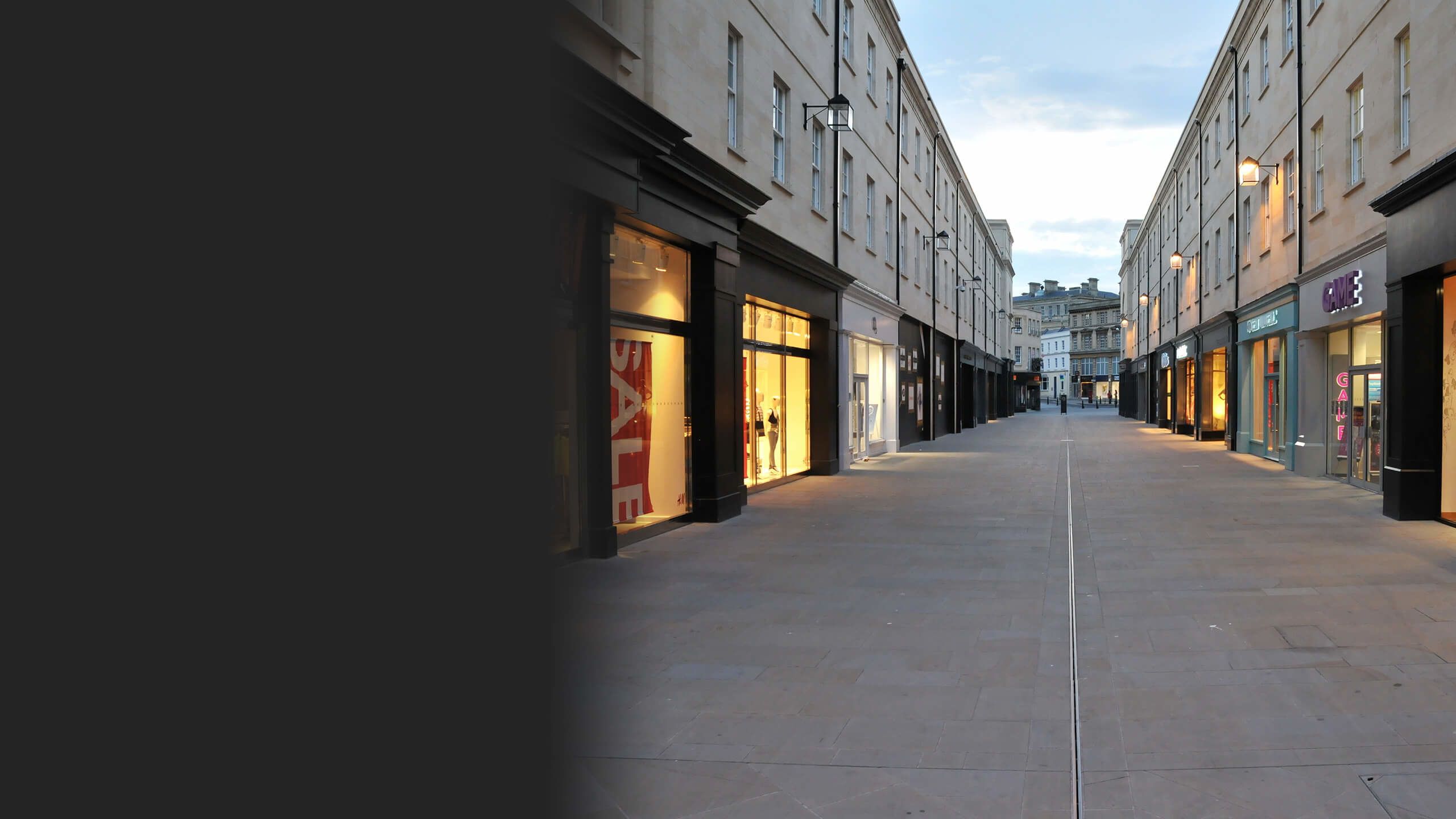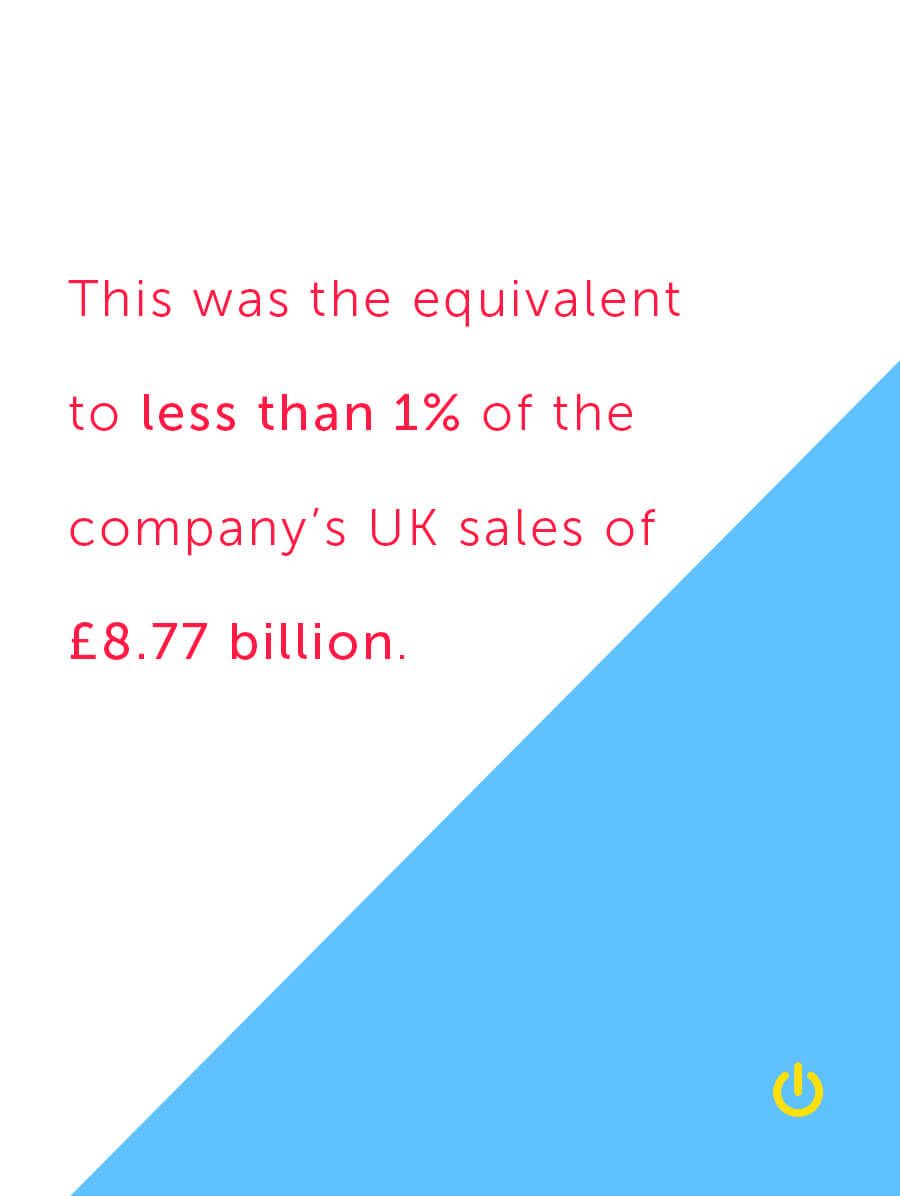Reinvent
Chapter two

Retailers that have reinvented themselves have stayed relevant.
Graham Soult, Retail Consultant and High Streets Task Force Expert who works with towns and cities to help them transform and promote their high streets, “Reinvention has taken many forms. National retailers like Waterstones, Hobbycraft and HMV, who have devolved marketing power to their local shops, have managed to embed themselves in their communities in ways that many other multiples have failed to do. Waterstones seems much more than a chain bookshop in terms of how it features manager’s recommendations, organises regular events with authors and stocks its shops in ways that speak to the local community”.
Retailers that haven’t reinvented themselves have simply collapsed. Graham goes onto add, “Debenhams was still a decent retailer a decade ago. It was well respected and a staple of the high street. However, its fashion offering, in particular, did not evolve as effectively as that of its competitors, and the business ended up with too many unloved and underperforming shops that looked and felt much the same as each other, wherever in the country you were. These came with high costs, including rising rents, business rates, wages and maintenance, and those liabilities got harder to cover as revenue began to fall. Sadly, Covid-19 simply accelerated the inevitable demise of a weak retailer that had stopped giving customers what they wanted and just couldn’t make the numbers stack up any more”.
That is not to say that Covid-19 has marked the end of the traditional department store. This year, the iconic London department store Liberty launched its new virtual shopping service in partnership with online platform Hero. Now customers from anywhere in the world can connect with an in-store Liberty associate when shopping online to ask detailed questions, receive product recommendations, photos and video consultations. During the last lockdown this generated hundreds of thousands of pounds in sales for the retailer.
Jonathan De Mello, Partner at CWM Retail Consulting that spearheads strategic retail consultancy projects for clients globally to help them maximise their potential added, “The pandemic resulted in a number of widely reported casualties on the high street, but this has led to a much healthier retail sector. The demise of these brands helped to reduce the number of struggling businesses and moved market share to more profitable brands who were able to invest heavily in innovation”.
Since the pandemic hit, the shift to working from home greatly reduced Pret A Manger’s footfall, as office workers and tourists disappeared from city centres. The brand pivoted and looked for new ways to engage their customer base by diversifying its activity and product range: launching a £20 per month coffee subscription, customer loyalty programme and selling its ground coffee and espresso beans online via Amazon as well as on supermarket shelves. The chain has also been opening new shops in petrol stations and in Tesco stores.
Another retailer collaborating with an online platform is Boots. The health and beauty giant is augmenting its click and collect and delivery services through a partnership with Deliveroo to deliver a range of more than 400 products to homes across the country. This will enable customers to have their Boots items delivered in as little as twenty minutes in towns including Birmingham, Brighton, Edinburgh and London. Deliveroo customers will also be able to order food items as well as over-the-counter medicines, Boots’ No7 products and other toiletries.
It is clear that those retailers who have invested heavily in their e-commerce platforms or have successfully pivoted their business operations have managed to trade well during the various lockdowns. However for those retailers who don’t have access to huge e-commerce budgets or significant investment to launch new product ranges; how have they reinvented themselves to survive?



Independents will be key to reinventing the high street
Personalisation is key. Dawn Mannis, Director and Co-Founder of our client The Sampler, independent wine merchant based in London comments, “Paradoxically the pandemic has been great for our business. We were deemed an ‘essential’ retailer during both lockdowns. Although we had to turn off our sampling machines we gained a significant number of new customers. Our challenge is now to retain those customers by building a more personalised relationship with them by capturing their data, find out about their preferences and phoning or emailing them when their favourite wines come into the shop. We certainly benefitted from people who wanted to shop locally and statistics show that over 70% of customers will continue to shop at their local independents”.
Successful independents may have a brighter future than their larger counterparts. As the Cadogan Estates has demonstrated, the high street could ultimately look more like it did a generation ago, with independent retailers from toy shops, book shops and jewellers to butchers, fishmongers and bakers stepping up to fill the gaps left by the demise of the large chain stores. It is these independent retailers offering a more personalised experience to customers who have embraced shopping locally that will thrive.
Apps like MyStreet, which was created during the pandemic to help small independent retailers stay connected to shoppers against the challenging backdrop of constantly changing lockdowns, have been a lifeline for many small independents. Customers are able to discover and support new shops and communicate directly with independent retailers as if in a face-to-face situation.
Graham goes on to add, “Independents have a massive role to play in the future high street as we move towards places that are more distinctive, local and eclectic. Forced to spend months on end at home, the pandemic has recalibrated people’s relationships with their local areas and shops. Many people have fallen back in love with their high streets and wish to support local shops and brands. Independents with an offering that is geared towards their local communities, who have been good at telling their stories, keeping their customers informed and implemented delivery services (in itself nothing new) have all thrived”.
However independents alone can’t fill all the retail spaces that are being vacated. Working with them we can start to create more interesting mixed-use hubs where different functions come together to create their own local dynamism. Landlords must ‘come to the party’ if they’re serious about saving the high street. They need to be far more innovative and nimble, offering flexible spaces that new businesses can take on and quickly transform.
Adapting to the changing market conditions and providing a positive customer experience are among the traits required for an independent retailer to be successful. By creating a digital experience that complements the physical presence and the ability to connect positively with the local community, the proportion of independents will rise as the high street continues to reinvent itself.
RWK Goodman Retail and Real Estate Partner Vicky Hernandez comments, “This reinvention will rely not only on independent retailers getting their strategy right. From developing a clear business model to embracing digital, striking the right balance between online and offline; but also on a complete revamp of the business rates regime which is killing the high street. And landlords being more flexible with leases. There is a lot of talk about collaboration but we need to see more action. The survival of the high street really does depend on all stakeholders being prepared to innovate and compromise. It’s not always comfortable but the old ways simply aren’t working any more so we need to be bold”.
Dawn adds, “Too many high streets that rely purely on retail become ghost towns after 6pm. Councils and Business Improvement Districts (BIDs) need to encourage more people to open up independent shops, bars, cafes and restaurants. People don’t want to walk down generic high streets with boarded-up and empty retail units, betting shops and rundown discount outlets. We need to encourage more innovative and creative shop keepers and hospitality businesses. These businesses need to feel confident that landlords will be realistic about the rents they can charge and be flexible about leases, not least given the unpredictability of their future takings in the face of online competition. Business rates also need to be addressed”.
For our high streets to be sustainable in the long term, we also need more people living in the centres of our towns and cities. Last year’s relaxation of planning laws made it possible to convert commercial properties, including vacant shops, into homes without planning permission. If we can mimic our continental neighbours and grow the number of residents living above and around the shops on our high streets, we can build places that are more sustainable. Having a choice of quality independent shops on our doorstep is a big influence when it comes to buying or renting a new home and that trend is only likely to increase as more of us embrace the ‘shop local’ message.
The business rates imbalance

Business rates remain one of the biggest barriers to businesses opening, expanding or surviving. The UK desperately needs a new, modern system of taxation that is fair to businesses that trade offline, online, or both if the high street is to survive.
In his book, Retail Therapy: Why the Retail Industry is Broken and What Can Be Done To Fix It, retail expert Mark Pilkington identified business rates as one of the primary causes of the high street’s decline.
There is no doubt that business rates have been having a catastrophic effect on the high street for some time. In January 2020, even before the pandemic had hit, Tony Brown, Chief Executive of Beales, one of the UK’s oldest department stores, cast the blame for its demise on unaffordable business rates. Some shops faced rates bills of up to ten times the cost of their rent. Factor in other high operating costs such as wages and utilities, and fierce competition from online retailers, and we had the perfect storm for high street retailers.
Editor’s note: Last year, a company called New Start 2020 bought the Beales brand and domain name and hired Tony Brown to launch a new store in Poole. This was followed by the reopening of stores in Peterborough and Southport based on a new business model.
In evidence to a Parliamentary inquiry way back in 2019, Amazon reported paying £63.4 million of business rates in the UK, largely from its network of buildings and locker sites across the country. This was the equivalent to less than 1% of the company’s UK sales of £8.77 billion. By comparison, retailer Next paid some £100 million of business rates on its far smaller turnover of £4 billion, equating to 2.5% of its sales.
Mark comments, “These pre-pandemic figures were astounding. Even before Covid-19 shifted everything online, some form of online tax was a necessity should high street shops stand a chance of competing equally against growing online sales. Post-pandemic £3 out of every £10 is now spent online. Business rates are no longer an equitable tax. If the Government cares about saving retailers, they would impose an internet tax. As we have seen some global businesses with UK operations pay virtually no business rates”.
We will see whether the Government’s re-evaluation of business rates in 2023 will deliver on that.
Vicky adds, “It really is soul-destroying for retailers who have done so well to adapt and survive recent events to have the spectre of the old business rates regime hanging over them. We have had numerous reports and Government consultations; change has been promised for so long - but it keeps getting delayed. Retailers would be forgiven for becoming cynical about it ever happening. Of course recent Government grants and the temporary suspension of rates are welcome but they are only short-term fixes. I think we all appreciate that local councils need the revenue that business rates generate and retailers aren’t asking not to pay any tax, just for there to be a fair playing field. Rather than tinkering with a system that is no longer fit for purpose we are calling on the Government to completely revamp the system of taxation and create a sales tax linked to turnover rather than simply the buildings that a retailer occupies”.





